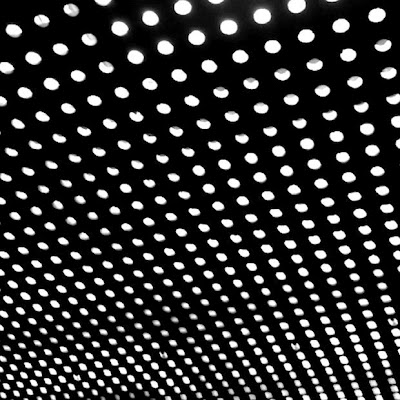
Beach House
Bloom
(Sub Pop; 2012)
By Jessica Faulds | 1 June 2012
In year of Our Lord 2000-and-torrent, official album release dates are one part formality, two parts joke. While May 15 was the official release date of Beach House’s much anticipated fourth effort, Bloom, it is an open secret that this thing appeared online about two months ago, dribbling from all the usual Internet pipelines. Anyone who even half cares about keeping up with indie-ish music (including, I’m sure, a huge chunk of CMG’s readership) heard this “spring” release at least a month before the frost melted.
What that means in terms of money, and how much of it Beach House members Alex Scally and Victoria Legrand are going to be denied due to the leak, is one of those nagging questions of conscience that most downloaders have learned to tune out. But in the case of Bloom, it’s a question we should consider carefully in light of how many seasons this album is going to last. After all, this record didn’t drop; it hovered to a landing. Bloom delivers no glancing blow; its impact is deep. The not-quite-immediately-catchy melodies and ambient flourishes touch down in the listener’s consciousness slowly, and then take some time to wiggle their toes. Which means Bloom is better equipped to weather its premature release better than most. Because it doesn’t matter when you first heard it—once it’s in your head, good luck uprooting it.
Though it’s arriving two years later, Bloom makes a fitting companion piece to Beach House’s breakout Teen Dream (2010), the album that saw the bands fuzzy carousel music transform into a soundtrack for the fully-grown. It was one of those albums critics call “fully realized” and “next-level” and whatever else we say when a cultishly popular band makes an album capable of pleasing both its cool-hunter fans and more mainstream audiences. Bloom keeps to the course that Teen Dream set, delivering majestic slow-burners that can satisfy the masses while still acknowledging its lineage in drum machine plops and hissing guitar fuzz. It plays Amnesiac (2001) to Teen Dream’s Kid A (2000): less of a surprise, but hardcore fans are probably already debating which is more mature, and how great would the album be that combined the best songs from each?
Of course, unlike Radiohead, Beach House are moving away from experimentalism. Their first two albums were constructed around sounds: gauzy guitars, toyish keyboards, and Victoria Legrand’s husky alto beckoning from behind a misty fuzz. With Teen Dream and Bloom, they’ve switched their emphasis to songwriting: the pleasures of tension and release, the prominence of vocals. Naturally, new approach has involved some tradeoffs. For example, now we know just how much soul Legrand’s voice can convey when it isn’t emerging from the fuzz (like, lots of soul). On the other hand, that soul is no longer quite a mystery. In becoming great, Beach House has become accessible—or is it that in becoming accessible, they became great? Either way, they are no longer a mysterious voice singing softly from an unknown place. Instead, they are one of the defining bands in indie rock right now. We know what they look like (or can find out using one of the 10,000 pages of results from Google image search); they can be found on main stages at major music festivals; and their lyrics, though they are as open-ended as ever, are no longer enigmatic, but relatable—their heartbreak palpable, but knowable.
Bloom takes Beach House even further from lo-fi obscurity than Teen Dream did: its production value is higher, each song’s many layers are audible, and the synths sound expensive. Fortunately, the band is able to match each dollar spent on Bloom’s production with solid raw material. Scally’s guitar work is a nimbly woven web that launches Legrand’s voice to the fore—a voice that, from front and center, sounds ripe, mature, and about ready to burst. Beach House is creating pretty high-grade pop, and perhaps equally importantly, they know it. With Teen Dream, it was possible that the band had just stumbled upon something great. They had put a finger on the zeitgeist, and, not wanting to waste the opportunity, given it the slowest, most loving handjob imaginable. Yet now, with Bloom, they’ve put a finger on their own significance. They are no longer sonic explorers stumbling upon moments of brilliance, but fabricators of said brilliance.
The thing that has made Beach House’s newest albums so great is also what puts the band in a precarious situation. They have become intentional about what they make—which is just a step away from manufacturing. It’s a position that requires some mulling over and is why I can forgive the band for choosing to stagnate somewhat. Bloom is not an attempt at another grand evolution. The style of songwriting is remarkably similar to that found on Teen Dream. Yet neither suffers much for it. It’s like Beach House are treading water in the clearest, bluest ocean in existence. I’d rather they don’t remain there forever, but it’s a rich enough atmosphere to sustain at least a couple of albums.
I realize this review fails to delve into specifics about the tracks themselves. Like how appropriate “Other People”’s chorus feels in the Facebook age (and just how great the song is). Or the hugeness of the tom-tom laced chorus of “Troublemaker.” Or the way closer “Irene” vamps on a single chord, droning out into nothingness, the band creating a plank of sound that we’ll gladly walk to see what’s at the end. But Bloom isn’t going anywhere. We can keep talking about it all year. After all, we’ve already had time to chew this thing over, and it still bursts with flavour.





